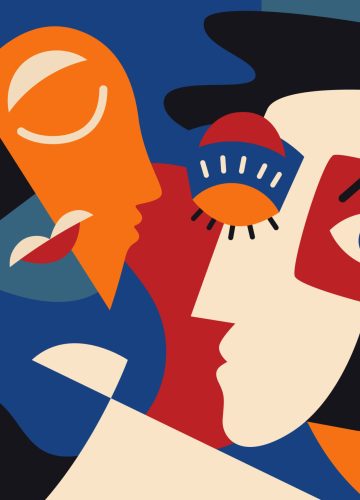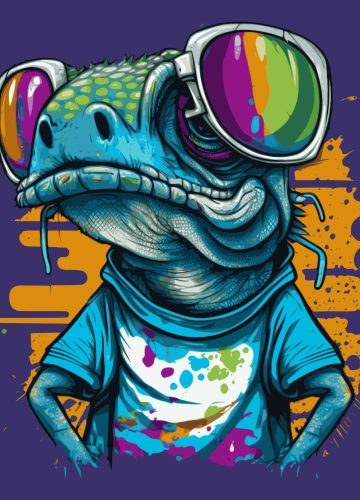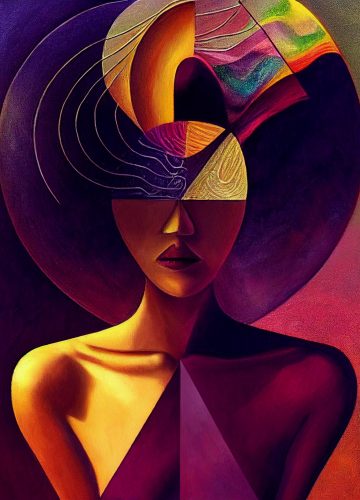What To Study For A Career In The Arts
Choosing a path for a career in the arts encompasses a broad spectrum of disciplines, each offering unique challenges and rewards. Whether you’re drawn to the traditional mediums of Fine Arts, the digital realm, or the dynamic spaces of theatre and fashion design, the educational journey requires not just a passion for the art but also a strategic approach toward acquiring the skills and knowledge needed to thrive. Among these, understanding the tools for stagecraft is essential for those interested in the performing arts, providing a foundation for creating compelling theatrical experiences. This guide delves into various fields of study for aspiring artists, designers, and creatives, aiming to illuminate the path that aligns with your creative ambitions and professional goals.
Fine Arts
Pursuing a degree in fine arts provides a comprehensive education in various visual arts disciplines. This could include studying painting, drawing, or printmaking. Throughout the program, you will learn about oil painting, watercolor techniques, and drawing skills. Additionally, you have the option to specialize in areas like photography or sculptural practices.
Obtaining a degree in printmaking, drawing, or painting will equip you with the necessary skills to showcase your drawing abilities using a variety of mediums. Additionally, you will gain knowledge in identifying significant works of art and interpreting them. A degree in photography will provide you with the hands-on experience required to build a strong portfolio of your work, allowing you to pursue a career as a photographer and impress potential clients. Similarly, a degree in sculptural practices will give you practical experience in working with materials like wood, plaster, and metal, as well as honing your skills in using professional tools effectively.
In the fine arts program, you can expect to enroll in classes such as art software basics, drawing, painting, and design studios. Additionally, there are required courses in art history, covering topics like Latin American art, non-European art, and American Indian and ancient American art.
Having a Fine Arts degree opens up opportunities for careers in various fields, such as becoming an artist, photographer, art director, multimedia designer, web developer, software developer, or craftsperson.

Graphic Design
If you like communicating with others through visual means and creating visual graphics to convey your message, you are practicing graphic design. This encompasses a variety of artistic mediums such as photography, painting, and drawing. The end result of graphic design work can be seen in menus, magazines, books, and television ads. Graphic designers use their skills to grab people’s attention, convince them to make purchases, evoke desire, and prompt them to take action.
Obtaining a graphic design degree will show potential employers that you have received thorough education in graphic arts technology and are proficient in using various art software applications. It will also indicate that you are skilled in applying analytical techniques in the design process. Additionally, earning this degree will allow you to build a portfolio highlighting your strengths in your chosen areas of design and media concentration.
While many may assume that a bachelor’s degree in graphic design only prepares you for a career as a graphic designer, this is not the case. With this degree, you have the opportunity to pursue various other careers such as a multimedia artist, animator, marketing specialist, art director, product developer, production artist, UI designer, UX designer, or creative director. Additionally, having this degree can help potential clients trust in your expertise if you choose to work as a freelance artist.

Business
Having a business degree may come as a surprise on this list, but it is incredibly beneficial for artists. As an artist, you are essentially running a business by creating and selling your work. To be successful, you must be willing to market yourself and your creations effectively.
As an artist, you will need to follow similar steps to other product sellers. This includes understanding your target audience, pricing your work effectively to generate profits and sustain your business, and having knowledge of marketing and sales strategies. These are all skills that are typically learned as a business major.
The program you select will give you a comprehensive understanding of the business industry, making it applicable to your career in art. Required courses may cover topics such as business management, legal aspects of business, accounting, financial management, and basic economics. Your chosen school may also offer the chance to specialize in a particular area, such as entrepreneurship, which could be beneficial for artists.
As a business major, you will be taught essential skills such as effective goal setting, maintaining ethical business practices, understanding the marketplace, strategic decision-making, and building professional relationships. These skills will be crucial in advancing your career as an artist.

Digital Arts
Digital art refers to artwork created using technology, often produced solely on a computer. If you enjoy drawing, you can still participate in digital art by scanning your hand-drawn images and editing them on your computer. This field encompasses various technologies, making it a vast and creative field for those interested in both art and technology. If you have a passion for both, pursuing a major in digital art may be a great fit for you.
The digital arts degree offers a comprehensive education that equips you with the skills for various career options. It covers sound, interaction design, illustration, digital 3D, animation, video, and graphic design. In addition to these courses, the program includes general education classes such as art history, math, philosophy, science, and writing to enhance your learning experience.
After graduating with a digital arts degree, you will have numerous career opportunities available to you. These options range from working as a camera operator for a TV show, producing television programs, teaching art, photography, painting, sculpting, illustrating, animating, designing graphics, editing film or videos, publishing materials, designing products, or directing art projects.
Having a digital arts degree will demonstrate to potential employers that you are familiar with the latest technological tools in a rapidly expanding industry. Employers value candidates who are proficient with the necessary equipment and can effectively use it in the creative process, making your digital arts degree a valuable asset that sets you apart from other applicants.

Game and Interactive Media Design
A degree in game and interactive media design can open doors to the lucrative world of video games, which is a major industry. Even if you’re not working on a big budget project, mobile games can still generate significant income, offering many opportunities to break into the gaming industry.
Upon completion of the game and interactive media design program, you will be equipped to create the fundamental design of a game while possessing storytelling skills. Your coursework will cover various aspects such as writing, music, audio, gameplay, art, and animation. This knowledge will enable you to develop captivating and interconnected games. Furthermore, the skills acquired through this major will include storytelling, time management, effective communication, critical thinking, and adaptability.
You have the option to select from various courses such as creative writing, digital foundations, JavaScript application development, communication, culture and media, video production basics, graphic animation, and filmmaking. Upon completion of your degree, you can pursue a career in media production, emerging interactive media, augmented/virtual reality, story design/writing, game design, or programming.

Camera work and the creation of films and videos
Cinematography involves visually capturing a story through the creation of a motion picture. It combines artistic and technical elements, involving the recording of light either electronically or chemically onto a medium. Studying cinematography involves learning skills such as camera movement, placement, composition, focus, shot size, and lighting.
You may not have thought of filmmaking as an artistic medium, but it truly is. Using cameras, you can creatively manipulate images to express yourself artistically, which is the essence of creating art. Your degree program will also teach you the technological aspects of filmmaking, which are crucial to the process. Courses such as film cinematographer fundamentals, cinematic lighting, digital cinematography introduction, and cinematography essentials for 2D animation will be part of your education. You may also have the chance to study scriptwriting and the history of film.
Once you have completed your studies in cinematography and film/video production, you will be ready to embark on a career as a cinematographer. In this role, you will have the responsibility of overseeing the creation of every scene in a film. Your opportunities will not be limited to just working on movies, as you may also work on television programs, advertisements, and videos. Additionally, you will have the qualifications to become a film producer, giving you the authority over the entire filmmaking process.

Theater Arts
Studying for a degree in the dramatic arts provides you with a comprehensive education in the field of theater. If you have a passion for acting, you will be able to delve into the history of theater, as well as learn about performance and production. In addition to acting, you can also focus on areas such as theater technology, design, playwriting, directing, and creative drama.
Theater involves teamwork from many individuals to create art, and having a theater degree shows employers that you have experience collaborating with a group. Having a degree also enhances your chances of getting hired in this competitive industry. With your degree, you have gained experience working with others, performing in front of a live audience, and understanding the intricacies of theater.
The theater arts major also provides you with various important skills. For instance, you will develop the skills to deliver presentations and effectively control your voice and body in front of an audience. Additionally, you will learn how to listen attentively, think critically, solve problems creatively, collaborate on projects, and focus intensely. The education you receive will prepare you to work both independently and as part of a team, meet deadlines, handle pressure, and stay focused when faced with unexpected situations. With a degree in theater arts, you can pursue career opportunities as an actor, director, writer, or set and costume designer.

Fashion Design
If you have a passion for fashion design, you have the option to pursue a degree in various specialized areas within the field. Some examples include fashion marketing, fashion merchandising, fashion visual merchandising, fashion product development, fashion styling, footwear and accessory design, costume design, textile design, knitwear design, and design. Throughout your studies, you may take courses such as fashion drawing, color theory, fabric technology, and applied textiles.
A student pursuing a bachelor’s degree will acquire important insights into the fashion sector that can open up various career opportunities. They will learn an extensive range of fashion terminology to effectively communicate their concepts both verbally and in writing. Additionally, their education will cover the latest technology and software that are essential for success in the professional world of fashion.
The fashion program will equip you with the skills necessary to create visually appealing presentations of your designs. In this program, you will learn how to effectively communicate your design ideas. Furthermore, you will gain the ability to produce your own unique designs and bring them to life based on your envisioned concept.
If you have a degree in fashion design, you have the option to pursue a career as a fashion designer or explore other paths such as product design, purchasing, sales, or fashion editorial roles.

Commercial and Advertising Arts
The commercial and advertising arts major falls within the visual arts field. If you enjoy using your artistic talents to connect with people in the commercial or advertising industry, this program would be a great fit for you. You will be taught how to utilize artistic methods to educate a business or target audience about products through various mediums such as print, digital media, or illustrations. You will also explore topics like computer graphics, collage, painting, cartooning, drawing, offset, lithography, silkscreen, etching, and engraving.
When pursuing a degree in commercial and advertising arts, you will study a diverse range of subjects such as mathematics, management, drawing, design, and computer science. This education will equip you to pursue a career as a copywriter, where you will have the chance to develop various advertisements. This could involve collaborating with a team to create radio and television commercials, brochures, and even websites for clients.
Having a degree in commercial and advertising arts can also lead to a career as an art director. Art directors are responsible for overseeing the visuals and ideas used in television commercials, book covers, and print media. You may also find employment at an advertising agency, where you would be responsible for supervising the design department.

Architecture
If you are both creative and have a strong understanding of mathematics and science, architecture is a great career path for you. It allows you to use both sides of your brain and offers the opportunity to work on a variety of projects such as shopping centers, healthcare facilities, restaurants, and homes.
Architects used to rely on drafting paper and pencils to create their designs in the past, but now they are incorporating Computer-Aided Design and Drafting (CADD) and Building Information Modeling (BIM) into their work. However, the ability to draw sketches is still important for initial meetings and situations where computers are not available.
Mathematics plays a crucial role in obtaining an architecture degree. This includes courses in calculus, analytic geometry, as well as studies in the history of architecture, environmental technologies, structures, and design.
This program can lead you down the path to becoming an architect, however, there are also various other opportunities available. Possessing a degree in architecture can open doors to professions such as property management, real estate, interior design, urban planning, landscape architecture, architectural management, consulting, and appraisal.

Final Thoughts
Embarking on a career in the arts is an exciting journey that blends creativity with professional ambition. From Fine Arts to Digital Arts, Graphic Design, Game and Interactive Media Design, and beyond, each discipline offers a unique window into the vast world of artistic expression and opportunity. As you consider your future in the arts, remember that your education is not just about mastering specific skills but about fostering a deeper understanding of your craft and its place in the world. Whether your path leads you to the studios of fine art, the innovative spaces of digital media, or the collaborative environments of theatre and fashion, the key is to pursue your passion with dedication, curiosity, and an openness to the myriad of possibilities that a career in the arts holds. Integrating DocJamesw into your learning resources can offer additional insights and guidance, enriching your educational journey and helping you navigate the complexities of the arts with confidence and creativity.
